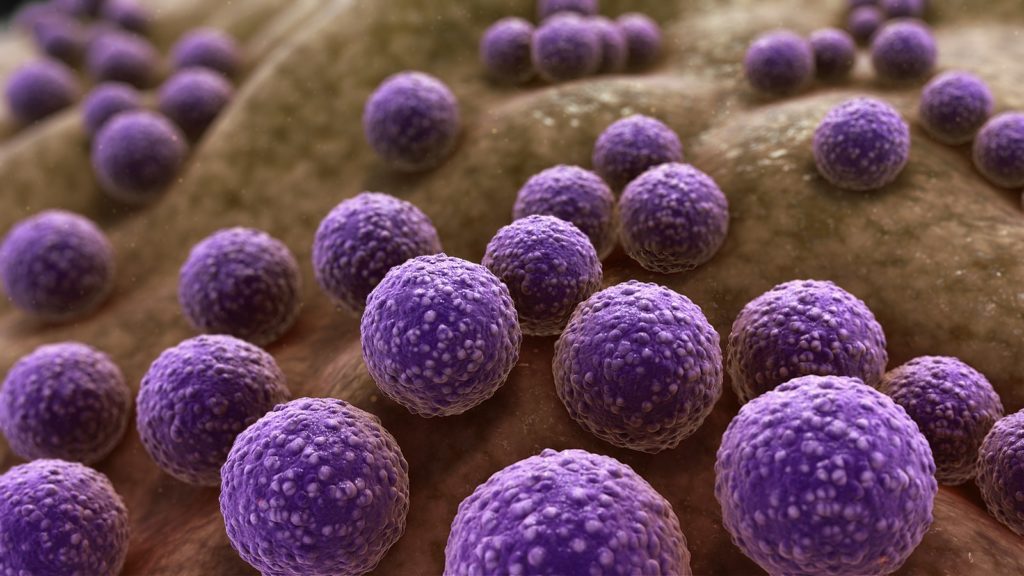Tenofovir disoproxil fumarate (also known as tenofovir DF or Viread) is used with other anti-HIV drugs to treat HIV infection. Taking tenofovir DF every day may also prevent HIV infection. This study will determine if taking a tenofovir DF tablet every day is safe and effective in preventing HIV infection. Participants in the study will be sex workers in Phnom Penh, Cambodia.
Official Title
Study of Daily Oral Tenofovir (Tenofovir Disoproxil Fumarate) to Prevent HIV-1 Infection Among Sex Workers in Cambodia
Conditions
– HIV Infections – HIV Seronegativity
Study Type
Interventional
Study Design
Prevention, Randomized, Double-Blind, Placebo Control, Parallel Assignment, Safety/Efficacy Study
Further Details
Cambodia has one of the highest rates of HIV infection in Southeast Asia. At the end of 2002, HIV infection rates among Cambodian sex workers ranged from 14.8% to 28.8%. Tenofovir DF is a nucleotide reverse transcriptase inhibitor (NRTI) that was licensed for the treatment of HIV-1 infection by the United States Food and Drug Administration (FDA) in October 2001. This randomized clinical trial will determine if a daily oral 300 mg dose of tenofovir DF is safe and effective in preventing HIV-1 infection. This is a collaborative study between the University of California, San Francisco, the University of New South Wales, and the Ministry of Health of Cambodia. Nine hundred and sixty HIV uninfected female sex workers in Phnom Penh will be enrolled in the trial. Participants will be randomized to receive either 300 mg of tenofovir DF or placebo daily for 12 months. Participants will be evaluated for rates of HIV infection, adherence to the drug regimen, and changes in risk behaviors. All participants will be monitored throughout the trial for side effects and toxicity. Participants will be involved in the study for 14 months.
Study Start
Eligibility & Criteria
Ages Eligible for Study: 18 Years and above, Genders Eligible for Study: Female Accepts Healthy Volunteers Criteria Inclusion Criteria HIV uninfected Report receiving money or gifts for vaginal or anal sexual intercourse in the year prior to study entry Able to provide a street address of residence for themselves and two personal contacts who would know their whereabouts during the study period Normal lab values within 14 days of study entry Ability to understand spoken Khmer Willing and able to provide written informed consent Exclusion Criteria Pregnant or breast-feeding Previously diagnosed active or serious infections Certain medications Active alcohol or drug abuse that could interfer with the study Previously diagnosed malignancies other than basal cell carcinoma Any other condition that, in the opinion of the study officials, would preclude informed consent, make participation in the study unsafe, complicate interpretation of study outcome data, or otherwise interfere with achieving the study objectives
Total Enrolment
960
Contact Details
[1] Kimberly Shafer, MD, Principal Investigator [2] National Institute of Allergy and Infectious Diseases (NIAID) [3] NCHECR – University of New South Wales, Australia
All content and media on the HealthEngine Blog is created and published online for informational purposes only. It is not intended to be a substitute for professional medical advice and should not be relied on as health or personal advice. Always seek the guidance of your doctor or other qualified health professional with any questions you may have regarding your health or a medical condition. Never disregard the advice of a medical professional, or delay in seeking it because of something you have read on this Website. If you think you may have a medical emergency, call your doctor, go to the nearest hospital emergency department, or call the emergency services immediately.







